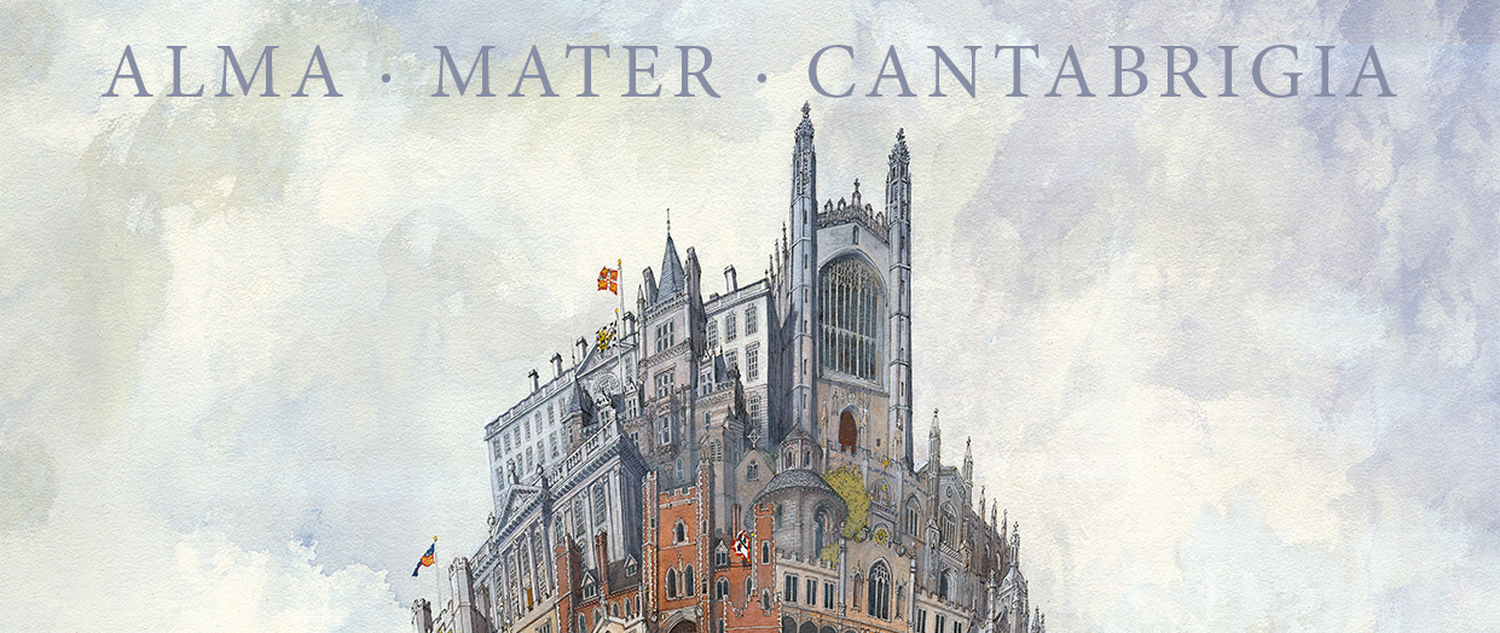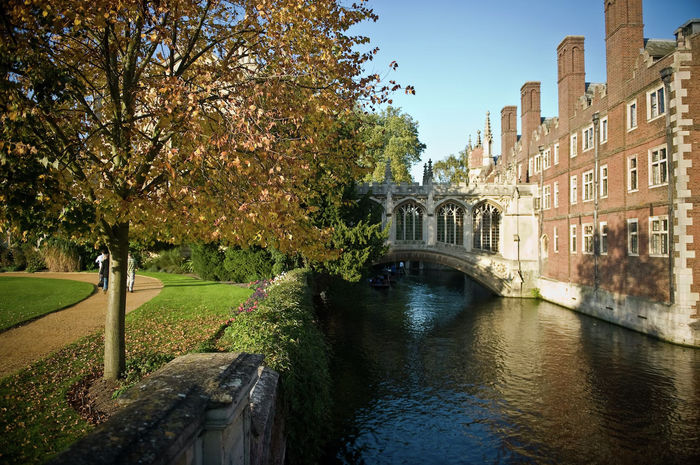Cambridge is a very small world. Yet most of us students graduate with only a superficial understanding of the city, having spent 3 years confined in the narrow walls and hallowed halls of the city centre and our college, which we contrastingly (and often suffocatingly) can claim to know every nook and cranny of. One of the main motivations of PhD student-filmmaker, Rowan Hall Maudslay, with his new documentary Nourishing Mother Cambridge, was to fill some of this knowledge gap. His film addresses the Cambridge student who simply “pass[es] through without knowing much about the place they’re in” by reflecting on the history of the city that we call our sometimes heavenly and often hellish home.
Surprisingly, when Maudslay began researching the project around a year ago, he found that, for such a historic town, ‘‘there’s surprisingly little content on Cambridge’’ beyond the audio-visual contributions of ‘‘Cambridge vloggers’’ like PaigeY, Ibz Mo and their contemporaries. Maudslay theorises that this void exists because Cambridge content is difficult to capture for the uninitiated, saying that ‘‘in order to have the access required to make this kind of documentary, you have to be part of the institution’’.
“The people that made the cut range from a charming Fleabag-esque chaplain talking about the changing role of college chapels, to mischievous senior fellows describing how supervisions have become less boozy over the years”
From the start of the project, Maudslay was aware of how ambitious it was, because ‘‘loads of interesting, potential directions the film could go in instantly came to mind’’. ‘‘Initially, we wanted to talk to the canal boaters and Cambridge nudists’’, he says, but some of these interview plans fell through. In the end, the people that appear in the documentary are mainly the Cantabrians that were available for the shoot, a common reality of student filmmaking, which Maudslay describes as being reliant not on money (which they had little of), but on ‘‘lots of goodwill from people’’ and timing.
The people that made the cut range from a charming Fleabag-esque chaplain talking about the changing role of college chapels, to mischievous senior fellows describing how supervisions have become less boozy over the years. We also meet anonymised student night climbers and people that work in the technologically ever-changing water drainage industry. The film’s interviewees are treated with a distanced but probing eye, being asked questions that do not prescribe a stance, but choose to leave the majority of judgement to the viewer. Is the chaplain disheartened by increasing secularism? Why do Trinity’s fellows still indulge in the university’s long-established, and perhaps outdated, traditions? Whether we agree with their answers or sympathise with their positions is a personal matter - a decision that preserves an objectivity to the documentary, but also risks leaving the film without a strong message; although, perhaps that’s the point.
“He does not claim universality, as he stresses, ’it’s a film about Cambridge, not the film about Cambridge’”
Admittedly, Maudslay recognises: ‘‘it’s a lot of old, white men’’, an unfortunate aspect of the documentary that struck me when watching its preview screening at the ADC, on the 16th of May. But, this neglect does not seem to have been intentional, being more the result of time-constraints and difficulty finding interviewees. Maudslay says that there are ‘‘lots of parts of Cambridge that are not in the film that [he] would like to have included’’. He continues candidly, ‘‘my biggest regret is not touching on homelessness in Cambridge’’, adding, ‘‘we were also close to interviewing a woman that was part of one of the first female Cambridge cohorts’’, but that, ‘‘again, sadly fell through’’.
Maudslay says ‘‘a clear failure of the film is that it doesn’t touch on inequalities and class in the student body’’, which could feel like a glaring omission or a missed opportunity to contextualise and uncover the roots of centuries-old Cambridge elitism. But Maudslay concludes that, ‘‘the inclusion of those topics would have rendered the project a different kind of film’’. He does not claim universality, as he stresses, ’’it’s a film about Cambridge, not the film about Cambridge’’.
‘‘Change is one of the film’s main themes,’’ says Maudslay, ‘‘I am fascinated by the tension that exists between the desire to preserve traditions and the inevitable nature of change’’. In many ways, Maudslay continues, ‘‘Cambridge has been historically late to accept the tide of change, like it let women in extremely late. But also, in some respects, the university has embraced change rapidly, like with technology.’’ In terms of his own relationship to the city’s transformation over the generations, Maudslay says that ‘‘there is something very positive about change, but there’s also a certain sadness in losing some of these worlds. Although, only regarding some things, of course.’’
“’you have a choice to view the intensity of Cambridge in a cynical, ‘realist’ way, or you can view it as being highly romantic, as, after all, here you are made to push yourself past what you thought was possible’’’
Maudslay also describes the documentary as being his sort of ‘‘ode to Cambridge’’. He says the lens he takes is a “deliberately romantic” one, because Cambridge as a place is ‘‘inherently nostalgic’’. For, he continues, ‘‘a common experience of Cambridge students is that, when they’re here, they’re incredibly stressed, overworked and find it to be a difficult place. But, when they graduate a few years later, they look back on the city fondly.’’ Stockholm syndrome, perhaps? I think silently, remembering the crisp, yellow exam timetable I picked up from my pidge this morning. Maudslay is more positive, as he says, “you have a choice to view the intensity of Cambridge in a cynical, ‘realist’ way, or you can view it as being highly romantic, as, after all, here you are made to push yourself past what you thought was possible.’’
Nonetheless, Maudslay does not deny that ‘‘[he has] a love-hate relationship with the place, like most people here’’. He says, ‘‘I think that Cambridge affords you incredible opportunities’’ and that ‘‘it’s lovely that you can easily cycle and walk over to all of your friends.’’ However, he recognises that ‘‘people do come here with different levels of comfort’’. For some individuals, Cambridge ‘‘will feel fairly similar to the school they came from before, but for others it will feel like a completely different world’’. He also mentions that ‘‘Cambridge is often claustrophobic and repetitive’’, laughing as he tells me, ‘‘I’m actually amazed I haven’t been here before’’ (referring to our chosen interview spot of Harvey’s House), “a novel experience in Cambridge - wow!”.
But it’s definitely not all doom and gloom here, especially for budding filmmakers, as Maudsley tells me, ‘‘the film scene has grown exponentially recently’’. He adds, ‘‘societies like CUFA started as a small group of friends, but nowadays they’re really holding their own’’.
As for Nourishing Mother Cambridge, HSPS students should perhaps put their Foucault aside when watching: this is not some detailed intersectional analysis of the history of the ‘town and gown’ divide. Instead, what you will find in the film is beautiful cinematography, a fun assortment of stories from different Cambridge characters, romantic shots of the city centre that may make your work blues feel worthwhile, as well as the impressive fruits of the labour of a student project. After all, as Maudslay explains, this documentary should be treated as ‘’a film about Cambridge, not the film about Cambridge’’, and hopefully this feat will inspire the creation of many more.


